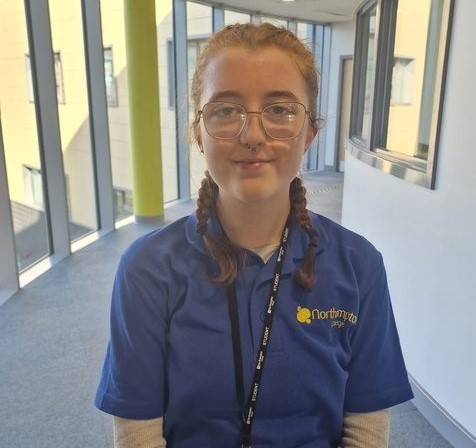This course is an introduction to games design and animation and students will learn the processes involved in creating games as well as studying how the games design industry works. You will study key players in this exciting and evolving segment of the creative arts industry and you will get the chance to pitch your own ideas and create your own platform.
You will be taught by teachers with experience of the industry and by the end of the two year course you will have a range of skills that will prepare you for employment in the games industry or for progression to a higher level of study. Some of the teaching staff continue to work freelance in the industry in order to provide you with the most up to date skills. The course will also enable you to develop transferable skills relevant to the games industry and other creative industries.
Although games design is at the core of your studies, you will also be introduced to the theoretical background of the industry and its place within the creative arts through research and planning units.
The course uses a range of software including Unity, Unreal, Maya, 3DCoat and Photoshop.
-
What will I study?
HNC Digital Games Development Units:
- Personal Project
- Creative Media Industry
- Professional Practice
- 3D Modelling
- Games Development Practices
- Games in Context
- Game Design
- Principles of User Experiences and User Interface HND Digital Games Development Units
- Collaborative Project
- Personal Professional Development
- Advanced Game Development Studies
- Sound for Media Products
- Advanced Animation
- Scripting for Games
- Environment and Level Design
All units are subject to change and may be withdrawn.
For further information about the course and the units you will study, please read the awarding body specification by clicking on the link below:
-
Who is this course for?
This course is ideal for you if you are interested in working in the games design industry or want to study the subject to a higher level and wish to gain a Level 4/5 qualification in Games Design.
-
How is the course assessed?
The course is assessed through regular and continuous practical assessments which include the theoretical contextual underpinning, along with evidence of reflective evaluative commentary on the practical work produced.
-
Knowledge
You will develop a thorough knowledge and understanding of:
-
Different audiences needs and how to produce content which meets those needs
-
Media language to understand how messages are communicated to an audience
- A range of pre-production processes with consideration of the impact that these pre-production decisions can have on the quality of the final product.
-
-
Skills
You will have the ability to:
- Utilise a range of software and hardware to produce Media content in line with industry conventions
- Apply rigorous primary and secondary research skills to the development of products
- Critically evaluate research sources as well as production work in order to make effective improvements to completed products.
-
Behaviours
What is required?
-
Develop positive working relationships with others in order to produce industry standard content
-
Build resilience by responding positively to feedback from staff and peers and implement this feedback to make improvements to work produced
- Productivity - organise work effectively and achieve required results within deadlines, demonstrating the drive and energy to get things done in pressurised situations and escalating appropriately when necessary.
-
-
General info
Delivery methods include practical workshop sessions in our games labs as well as seminars which cover the contextual underpinning which will inform your practical work. Expect approximately 25% of your lessons to be focused on theoretical understanding.
Students are timetabled for approximately 2 full days per week. Some lessons may be timetabled in the evening in order to provide greater flexibility for those students who work part-time. We expect students to be devoting 2 days of their week to completing work outside of lessons, whether this be in college using the software or at home. All of our HNC/HND students have access to our games labs and can drop in at any time.
For more information please call us on 0300 123 2344.
-
Progression and Career Opportunities
At the end of the two year course you should have developed the skills and qualifications necessary to begin a career within the games sector or other similar, creative or technical industries. You may even want to be a freelancer.
Alternatively, successful students can choose to continue their studies with a final year of a degree level qualification at relevant universities.
Potential careers could include: 3D Artist, Character Designer/Animator, Game Developer/Programmer, Game Content Creator, Technical Artist, Animator, Facial Animator/Rigger, Motion Editor, Visual Effects Artists, 3D Modeller/Texturer, Cinematic Animator, Environment Artist, Level Designer, Architectural visualisation and many more.
-
Entry Requirements for new students
Students will require an appropriate Level 3 qualification which equates to a total of 48 UCAS points (such as 2 Ds or above in A Levels, an overall Merit Pass grade in BTEC Diploma, an overall Pass grade in BTEC Extended Diploma, an Access to HE Diploma or an Advanced Apprenticeship).
Students will also need to achieve a grade 4 or above in English and maths at GCSE level. Applicants aged 21 or older who do not have the entry requirements may be eligible for acceptance based on an interview.
-
Admissions Process
We recommend that you attend one of our exciting open events so that you can look around the department, the college and meet the tutors. You are welcome to do this before or after you apply.
These events have proved very successful in ensuring students and their families see the best of what the college has to offer such as our inspirational teachers, state-of-the-art facilities, award-winning library and places to eat.
Once you have applied our experienced Enrolment Team will consider your application carefully and will let you know, by email, if the College would like to make you a conditional offer based on you meeting the specified entry requirements. If your predicted grades or career aims suggest that an alternative subject area or course level would be more appropriate for you at this stage, we will contact you either by telephone, email or text. If you have told us that you have some additional support needs we will contact you to find out more so that we can help you.




